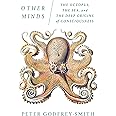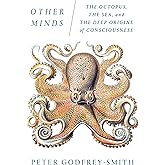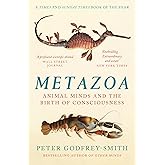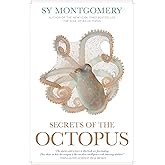
Enjoy fast, free delivery, exclusive deals, and award-winning movies & TV shows with Prime
Try Prime
and start saving today with fast, free delivery
Amazon Prime includes:
Fast, FREE Delivery is available to Prime members. To join, select "Try Amazon Prime and start saving today with Fast, FREE Delivery" below the Add to Cart button.
Amazon Prime members enjoy:- Cardmembers earn 5% Back at Amazon.com with a Prime Credit Card.
- Unlimited Free Two-Day Delivery
- Streaming of thousands of movies and TV shows with limited ads on Prime Video.
- A Kindle book to borrow for free each month - with no due dates
- Listen to over 2 million songs and hundreds of playlists
- Unlimited photo storage with anywhere access
Important: Your credit card will NOT be charged when you start your free trial or if you cancel during the trial period. If you're happy with Amazon Prime, do nothing. At the end of the free trial, your membership will automatically upgrade to a monthly membership.
Buy new:
-36% $18.45$18.45
Ships from: Amazon.com Sold by: Amazon.com
Save with Used - Good
$17.45$17.45
Ships from: Amazon Sold by: ollymex

Download the free Kindle app and start reading Kindle books instantly on your smartphone, tablet, or computer - no Kindle device required.
Read instantly on your browser with Kindle for Web.
Using your mobile phone camera - scan the code below and download the Kindle app.



 Audible sample
Audible sample Follow the author
OK
Living on Earth: Forests, Corals, Consciousness, and the Making of the World Hardcover – September 3, 2024
Purchase options and add-ons
One of the Washington Post's 50 Best Nonfiction Books of 2024
The bestselling author of Other Minds shows how we and our ancestors have reinvented our planet.
If the history of the Earth were compressed down to a year, our species would arise in the last thirty minutes or so of the final hour. But life itself is not such a late arrival: It has existed on Earth for something like 3.7 billion years―most of our planet’s history and over a quarter of the age of the universe (as far as we can tell).
What have these organisms―bacteria, animals, plants, and the rest―done in all this time? In Living on Earth, the philosopher Peter Godfrey-Smith proposes a new way of understanding how the actions of living beings have shaped our planet. Where his acclaimed books Other Minds and Metazoa explored the riddle of how conscious minds came to exist on Earth, Living on Earth turns to what happens when we look at the mind from another side―when we come to see organisms as active causes, not merely as results of the evolutionary process. The planet we inhabit is significantly the work of other living beings, who shaped the environments that we ourselves later transformed.
To that end, Godfrey-Smith takes us on a grand tour of the history of life on earth. He visits Rwandan gorillas and Australian bowerbirds, returns to coral reefs and octopus dens, considers the impact of language and writing, and weighs the responsibilities our unique powers bring with them, as they relate to factory farming, habitat preservation, climate change, and the use of animals in experiments. Ranging from the seas to the forests, and from animate matter’s first appearance to its future extinction, Godfrey-Smith offers a novel picture of the course of life on Earth and how we might meet the challenges of our time, the Anthropocene.
- Print length336 pages
- LanguageEnglish
- PublisherFarrar, Straus and Giroux
- Publication dateSeptember 3, 2024
- Dimensions5.75 x 1.1 x 8.55 inches
- ISBN-100374189935
- ISBN-13978-0374189938
Discover the latest buzz-worthy books, from mysteries and romance to humor and nonfiction. Explore more

Explore your book, then jump right back to where you left off with Page Flip.
View high quality images that let you zoom in to take a closer look.
Enjoy features only possible in digital – start reading right away, carry your library with you, adjust the font, create shareable notes and highlights, and more.
Discover additional details about the events, people, and places in your book, with Wikipedia integration.
Frequently bought together

Customers who viewed this item also viewed
From the Publisher
Praise for Living on Earth: Forests, Corals, Consciousness, and the Making of the World by Peter Godfrey-Smith



Editorial Reviews
Review
"[Godfrey-Smith] is possessed of a prodigious curiosity . . . His delight in the natural world is infectious, and Living on Earth brims with intriguing and endearing novelties . . . It is best read, I think, as an ethical exemplar: a model of the sort of attitude that we ought to adopt in our dealings with nonhuman life . . . [Godfrey-Smith's] luscious and amazed language befits the treasures that we have been vouchsafed and that we have so badly betrayed." ―Becca Rothfeld, The Washington Post
"[Living on Earth] beautifully describes how birds, octopuses, and even fish can lead lives full of 'richness,' in which past events give meaning to future ones . . . Godfrey-Smith doesn’t just want to understand [a] way of looking at the world. He wants us to feel it, and to experience ourselves within it." ―Joshua Rothman, The New Yorker
"Living on Earth is consistently rewarding, packed with insights and invitations to reflect, and blessed with some exquisite writing . . . Godfrey-Smith insists on identifying with nature instead of standing outside as steward: and on 'gratitude and a sense of kinship' with the process that delivered our species into the world." ―Philip Ball, The Guardian
"Godfrey-Smith does not use the word miracle in the title of his ambitious new book, Living on Earth, but there is scarcely a page that does not recount one. His subject is the astounding creativity of life, not just to evolve ever-new forms, but to continually remake the planet that hosts it." ―Richard Schiffman, Undark
"A thoughtful meditation on how the actions of organisms, even the most primitive (ticks, snails), have generated the world humans have inherited . . . [Full of] enlightening insights into the natural world and our often perilous relationship to it." ―Kirkus Reviews
"Godfrey-Smith finds a purpose for philosophy and ethics in the discussion of biology . . . Attention-grabbing . . . Particularly poignant are his musings on human relationships with animals." ―Booklist
"Godfrey-Smith charts the evolution of plants and animals, showing how each break from the 'tree of life' reflects the changing environment and eventually also shapes it . . . In this clever, compassionate and often deeply moving book, he encourages us to consider not just how we got here, but where we choose to go next." ―Elle Hunt, New Scientist
"Elegant . . . Eye-opening . . . Delightful." ―Veronika Meduna, New Zealand Listener
"Living on Earth is a hugely important book. The final installment in Peter Godfrey-Smith's essential trilogy, it give us a sweeping, careful, and courageous exploration of a natural world suffused with life, with minds, and perhaps with consciousness too. Godfrey-Smith writes with grace, humility, and wisdom about a dizzying array of topics, from the distant past to the far future, from the deep ocean to the frontiers of technology. The picture he paints reaffirms our continuity with the natural world, and impresses on us the urgency of the choices we now face.” ―Anil Seth, director of the Centre for Consciousness Science at the University of Sussex and author of Being You: A New Science of Consciousness
"Only Peter Godfrey-Smith could write this book. It offers a vast, kaleidoscopic, and immensely thought-provoking overview of the development of life on Earth, with special attention to humanity's place in the bigger picture. We are often told that human beings are part of the natural world, but rarely is the mutual influence between people and the rest of our shared ecosystem spelled out with such care." ―Sean Carroll, professor at Johns Hopkins University and author of Quanta and Fields
“In Living on Earth, Peter Godfrey-Smith once again combines vivid and compelling descriptions of the natural world, unexpectedly fascinating scientific results, and philosophical arguments that are exceptionally clear and accessible as well as deep and profound. This book offers lucid and thoughtful discussions of the urgent ethical questions about our relationships to other animals.” ―Alison Gopnik, professor at the University of California, Berkeley and author of The Gardener and the Carpenter
"Strap in as Peter Godfrey-Smith takes us on a dazzling exploration of the planet's diverse tenants, all of whom sculpted the environment we'd later inherit and transform. An essential read for understanding the legacy of the spot we're standing in right now, and its future." ―David Eagleman, neuroscientist at Stanford University and author of Incognito and Livewired
"Peter Godfrey-Smith not only reviews science, he probes it. In his hands this always yields rich new insights on the nature of life." ―Michael S. Gazzaniga, professor of psychology at the University of California, Santa Barbara and author of The Consciousness Instinct
About the Author
Product details
- Publisher : Farrar, Straus and Giroux (September 3, 2024)
- Language : English
- Hardcover : 336 pages
- ISBN-10 : 0374189935
- ISBN-13 : 978-0374189938
- Item Weight : 2.31 pounds
- Dimensions : 5.75 x 1.1 x 8.55 inches
- Best Sellers Rank: #637,219 in Books (See Top 100 in Books)
- #34 in Ecology (Books)
- #95 in History & Philosophy of Science (Books)
- #13,698 in World History (Books)
- Customer Reviews:
About the author

PETER GODFREY-SMITH is a professor in the School of History and Philosophy of Science at the University of Sydney. He is the author of Metazoa and the bestselling Other Minds: The Octopus and the Evolution of Intelligent Life, which was shortlisted for the 2017 Royal Society Science Book Prize and has since been published in more than twenty languages. He is also the author of four other books, including Theory and Reality: An Introduction to the Philosophy of Science and Darwinian Populations and Natural Selection, which won the 2010 Lakatos Award for an outstanding work on the philosophy of science.
Customer reviews
Customer Reviews, including Product Star Ratings help customers to learn more about the product and decide whether it is the right product for them.
To calculate the overall star rating and percentage breakdown by star, we don’t use a simple average. Instead, our system considers things like how recent a review is and if the reviewer bought the item on Amazon. It also analyzed reviews to verify trustworthiness.
Learn more how customers reviews work on AmazonTop reviews from the United States
There was a problem filtering reviews. Please reload the page.
- Reviewed in the United States on September 4, 2024This fascinating book examines how living organisms have shaped the world, from cyanobacteria oxygenating the atmosphere to human activity increasing the levels of carbon dioxide. Informative and easy to read, the book also confronts the ethical implications of human actions, exploring issues like factory farming, habitat destruction, and animal experimentation. I enjoyed the audiobook narration.
Thanks, NetGalley, for the ARC I received. This is my honest and voluntary review.
- Reviewed in the United States on September 25, 2024Godfrey-Smith--a philosopher of science, not a scientist--describes Living on Earth as "a history of organisms as causes, rather than evolutionary products," and adds that "One result is a dynamic picture of the Earth, a picture of an Earth continually changing because of what living things do."
This results in some interesting tidbits, such as how the oxygen exhaled by early cyanobacteria interacted with the iron in nearby sedimentary rocks to turn them rust-red. But I turn over and over in my mind a statement such as "This idea of a history that puts minds, especially human minds, into a lineage of transforming agents, and treats those agents as part of the history of the Earth, was the seed of the book," and I'm at something of a loss to understand what's novel in it, what's going to change my perspective on evolution or on "the history of the Earth." That human minds are (a) part of Earth's history, and (b) transformative -- we are in the Anthropocene, no? -- isn't exactly news.
There were phrases and insights that kept me reading. Living things as "pockets of organization." Life as replication, vs life as the presence of metabolism, and what we make of viruses, which replicate themselves but pirate other metabolisms to do so. Where the border of an organism is, when the organism has effects outside itself. That a living planet holds much more energy than a dead one, because a living planet (ours) is storing the sun's energy. That the Gaia hypothesis may tempt us to think that the Earth is capable of rescuing itself from our deleterious effects on it. "With the evolution of flowers, plants could now interact at a distance. ... Insects became, in a sense, instruments used by plants to span space." I appreciated, too, Godfrey-Smith's discussion of consciousness, which he sees as prevalent in some form even among creatures, such as insects, that we don't usually think of as aware in any way. The same goes for his ethical argument about how we treat the animals we use for food and in experimentation. (This argument has much in common with the discussion in Todd May's excellent Should We Go Extinct?.)
The trouble is that, as engaging as I found many of the pieces of Godfrey-Smith's argument, I remained at a loss to understand where that argument led -- what was original about it, I mean. And G-S really seems to like the sound of his own voice, because gosh was there a lot of repetition.
Jonathan Weiner's The Beak of the Finch and Carl Zimmer's Parasite Rex transformed my understanding of evolution and (believe it or not) power. That's what I want, ideally, from a book about science; I was hoping to find it here, and I didn't.
Thanks to FSG and NetGalley; this is my honest opinion.
- Reviewed in the United States on September 12, 2024Living on Earth is an epic examination of life on our planet. The author, Godfrey- Smith takes a sweeping look at biology and evolutionary theory, but in an accessible and interesting way. Godfrey-Smith brings philosophical musings to the front and center. Kant and his categorical imperative are discussed, along with the views of utilitarianism and Pete Singer’s animal welfare perspective. Godfrey-Smith delves into intentionality and the choices made in nature that affect our planet as a whole.
I listened to the audiobook in advance for free from NetGalley. It was an enjoyable experience, with great narrators (including the author) who had a calm and knowledgeable way of presenting the material. The information shared was fenced and nuanced, so I did have to re-listen to several parts to comprehend. The book itself was very descriptive, really bringing the reader into the topic at hand. Overall, I felt this audiobook was worth the time I put into to listen and puzzle over the contents. It was interesting, with a plethora of scientific information shared in a fun, understandable way. Living on Earth gave me a lot to digest and mull over.
- Reviewed in the United States on November 26, 2024I was tempted to give only one star, but in fairness I only read the first page. Here the author instructs the reader on the correct pronunciation of "Cyanobactiera (pronounced with a soft 'c' as in the color cyan: sy-an-o-bacteria)." Perhaps he thought he was writing a book for dummies?
- Reviewed in the United States on September 6, 2024I have the utmost respect for Peter Godfrey-Smith, who is a great thinker and has a very distinctive perspective on evolutionary biology. However, I always find it a bit difficult to get engaged in his narrative – for some reason his style is not to my liking. This book was no different. It's very informative, even eye-opening at times – but presented in a way that I found less than compelling. I have to admit that I much preferred another recent book on a similar subject, "Becoming Earth" by Ferris Jabr. But if you're a fan and have devoured previous Godfrey-Smith books, you won't be disappointed.
Thanks to the publisher, Farrar, Straus and Giroux, and NetGalley for an advanced copy of this book.
- Reviewed in the United States on September 8, 2024This is an interesting mix of science and philosophy about life on Earth and how scientists theorize life began and on the nature of life itself.
- Reviewed in the United States on December 30, 2024I must agree with the other commenter. This book feels like an unedited thesis; definitely disappoints the expectation aroused by its nice cover. It feels like a book in the making that still needs to go through editing before publishing. It’s hard to understand the ideas he attempts to communicate because he devotes so many paragraphs to explain what he wishes to communicate instead of communicating it. This book isn’t a finished product.
Top reviews from other countries
 lunndabhraReviewed in the United Kingdom on October 7, 2024
lunndabhraReviewed in the United Kingdom on October 7, 20245.0 out of 5 stars Excellent. Well-written, informative. Thought-provoking.
Educational and eye-opening thoughts on life and its development on Earth. Highly recommend.
 PierreReviewed in France on November 27, 2024
PierreReviewed in France on November 27, 20242.0 out of 5 stars Disappointing end to a great book series
I had to write this review because I thoroughly enjoyed Godfrey-Smith's two previous books, Metazoa and Other Minds. This third one is clearly the one you should skip.
After reading this book, I could not sum up what the main points of this book are. I thought it would be about how life shapes the Earth, but there isn't that much of that. As another reviewer mentioned, this is a very narratively driven book, which, while being rather pleasant to read, lacks in actual facts and information.
So, I couldn't tell you what this book is about overall, but nearly a third of this book on "life, consciousness and the making of the natural world" is an ethical discussion about how we treat animals in farming and experiments, and about the climate.
When it comes to animal experiments, the author's arguments simply are extremely ill-informed, shockingly so for someone as well versed in animal research as P. Godfrey-Smith. Godfrey-Smith favors ending animal research on mammals, birds (supposedly), and octopuses.
He argues that the fact that this would slow down research (or rather, halt it entirely), and result in countless lost human lives and immense suffering is pointless (anyone with sick relatives will certainly be glad to know that their suffering is less important than a mice's), as research would advance even faster if we used human prisoners. And Godfrey-Smith argues that since we are capable of deciding not to use prisoners for experiments, we could and should decide not to use animals.
As if experimenting on humans and animals were comparable! However, the human species IS very different from the rest of the animal kingdom, and thus Godfrey-Smith's reasoning doesn't hold. Surely, if animal experiments are as bad as human experiments, then running over a rat in your car is equivalent to manslaughter? This logic either works for every situation, or it doesn't work at all.
So in my opinion the book doesn’t get at « how has life shaped and been shaped by our planet? » as the blurb promises, but is actually a rather radical militant argument against animal experimentation, and dare I say, as a result, against humanity. Of course the author is entitled to his opinion, but this is quite the departure from the first two books.
 LouisReviewed in Australia on October 19, 2024
LouisReviewed in Australia on October 19, 20245.0 out of 5 stars Where does life come from?
A brilliant book that explains in detail why I studied geology: not for money but because I wanted to know where and how life on earth originated, and how important this was for the earth and its inhabitants. A precious philosophical book that is readable for everyone who can think for him/herself. After 50 years as a geologist in over 45 countries I highly recommend this well-written and thoughtful book.
 jeronimoReviewed in the United Kingdom on October 3, 2024
jeronimoReviewed in the United Kingdom on October 3, 20243.0 out of 5 stars Not the clearest of expositions
Generally I was disappointed in this book (I had high expectations from reading reviews in the wider press). Generally I found the presentation a bit confusing... Not quite wholly factual, not quite completely speculative and with a somewhat diffuse and loose "conversational" style of delivery which left me wondering from time to time what the author was getting at... I guess it could be a cultural thing too (he is not from the UK).
I personally prefer a more robust dialogue. All information is, to some extent, speculative but a stronger thread, along the lines of "Sapiens", would have allowed me to get more out of the book.

















